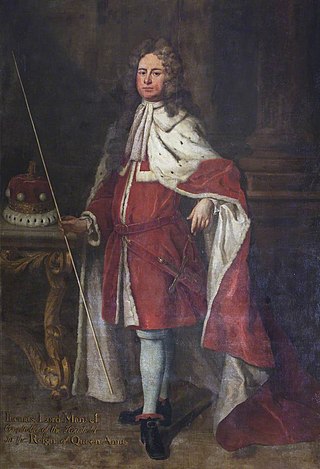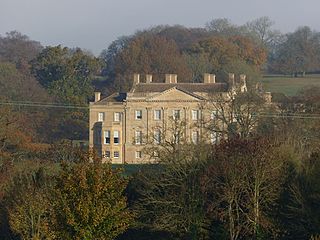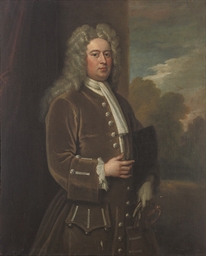Related Research Articles

Thomas Mansel, 1st Baron Mansel PC was a Welsh nobleman and politician who sat in the English and British House of Commons from 1689 until 1712, when he was raised to the peerage as Baron Mansel as one of Harley's Dozen and sat in the House of Lords.
Thomas Master was an English politician who sat in the House of Commons from 1685 to 1690.
Thomas Master was an English politician who sat in the House of Commons from 1747 to 1749.
Charles Coxe, of Lincoln's Inn and Rodmarton and Lower Lypiatt, Gloucestershire, was an English lawyer and Tory politician who sat in the English and British House of Commons between 1698 and 1722.
Benjamin Bathurst FRS of Lydney, Gloucestershire, was an English politician who sat in the House of Commons for 54 years from 1713 to 1767.
Sir Richard Grobham Howe, 3rd Baronet (c. 1651–1730), of Little Compton, Withington and Chedworth, Gloucestershire, and Great Wishford, Wiltshire, was an English landowner and Tory politician who sat in the English and British House of Commons between 1679 and 1727.
John Codrington, of Codrington, Gloucestershire and Wraxall, Somerset, was an English Tory politician who sat in the House of Commons between 1710 and 1741.
Peter Bathurst, of Greatworth, Northamptonshire and Clarendon Park, near Salisbury, Wiltshire, was a British landowner and Tory politician who sat in the House of Commons between 1711 and 1741.
Maynard Colchester, of Westbury Court and the Wilderness, was an English lawyer and politician who sat in the English and British House of Commons from 1701 to 1708.

Edmund Bray (1686–1725) of Barrington Park, Gloucestershire was a British politician who sat in the English House of Commons from 1701 to 1708 and in the British House of Commons from 1720 to 1722.
Sir Robert Jenkinson, 3rd Baronet, of Walcot, Charlbury, Oxfordshire, and Hawkesbury, Gloucestershire, was a British landowner and Tory politician who sat in the House of Commons from 1710 to 1717.

Sir John Guise, 3rd Baronet of Elmore Court, Gloucestershire was a British landowner and politician who sat in the House of Commons between 1705 and 1727.
Joseph Earle, was a British merchant of Bristol and politician who sat in the House of Commons from 1710 to 1727.
Charles Leigh (1686–1749) of Leighton Buzzard, Bedfordshire was a British politician who sat in the House of Commons between 1710 and 1734.
Charles Cholmondeley of Vale Royal, Cheshire, was a British landowner and Tory politician who sat in the House of Commons between 1710 and 1756.
Lieutenant-General James Scott, of Commieston, Kincardine, was a British Army officer and politician who sat in the House of Commons from 1713 to 1734. He served in the Scots Guards for 51 years

Dudley North of Glemham Hall, Little Glemham, Suffolk was a British landowner and Tory politician who sat in the House of Commons from 1710 to 1730. North was the eldest and only surviving son of Sir Dudley North of Camden Place, Maiden Lane, London and his wife Anne Cann, daughter of Sir Robert Cann, 1st Baronet of Compton Greenfield, Gloucestershire.

Charles Eversfield of Denne Place, near Horsham, Sussex, was a British Tory politician who sat in the House of Commons between 1705 and 1747.
Thomas Bramston (1658–1737), of Waterhouse, Writtle, Essex, was a British chancery clerk and Tory politician who sat in the House of Commons from 1712 to 1727.
William Levinz of Grove Hall and Bilby, Nottinghamshire was a British lawyer and Tory politician who sat in the English and British House of Commons between 1702 and 1734. He fought a duel with an opposing Whig agent.
References
- ↑ Foster, Joseph. "Mascall-Meyrick in Alumni Oxonienses 1500-1714 pp. 982-1007". British History Online. Retrieved 2 January 2019.
- 1 2 "MASTER, Thomas (1690-1770), of Cirencester Abbey, Glos". History of Parliament Online (1690-1715). Retrieved 26 February 2019.
- ↑ "MASTER, Thomas (1690-1770), of Cirencester Abbey, Glos". History of Parliament Online (1715-1754). Retrieved 2 January 2019.